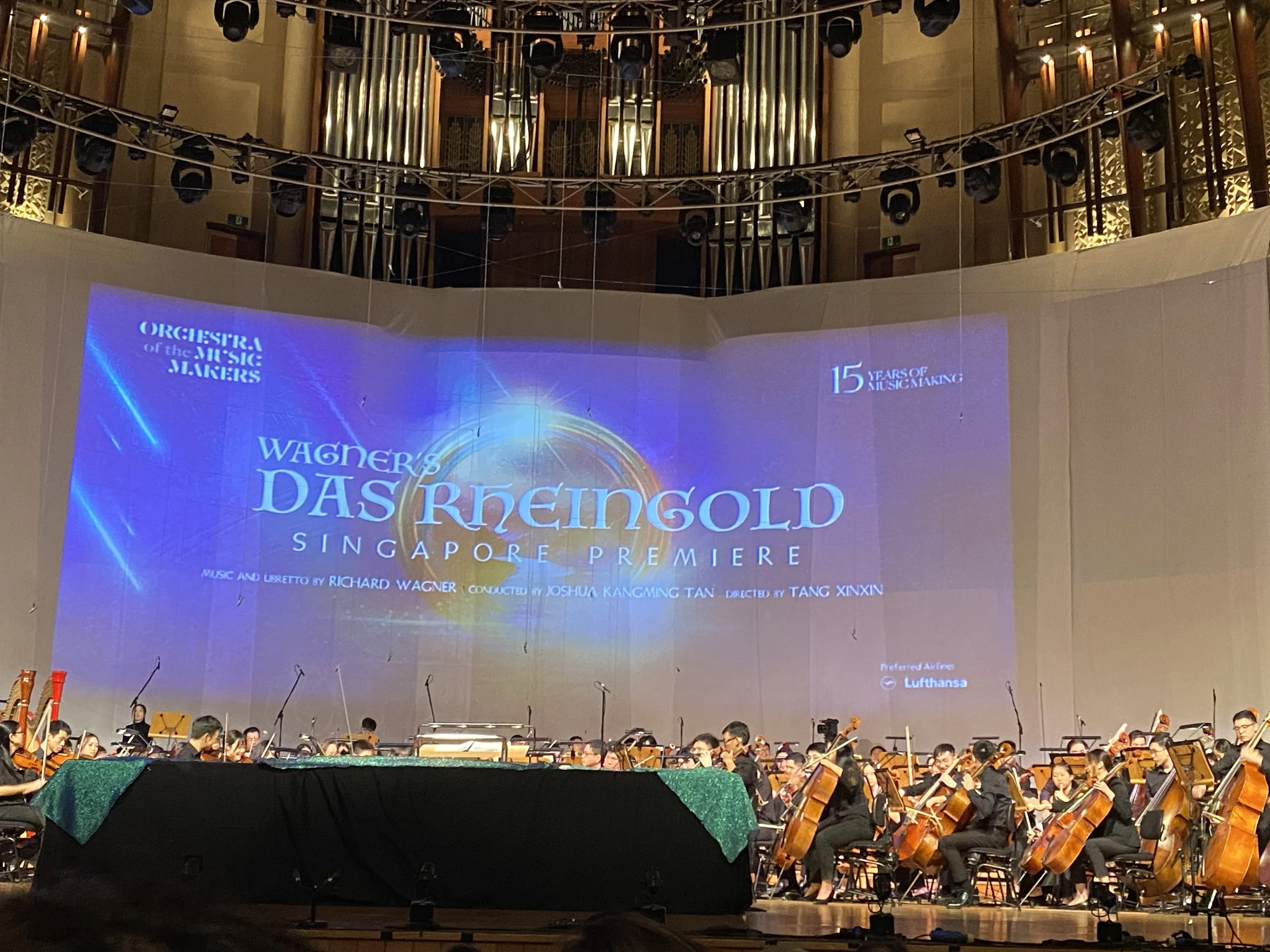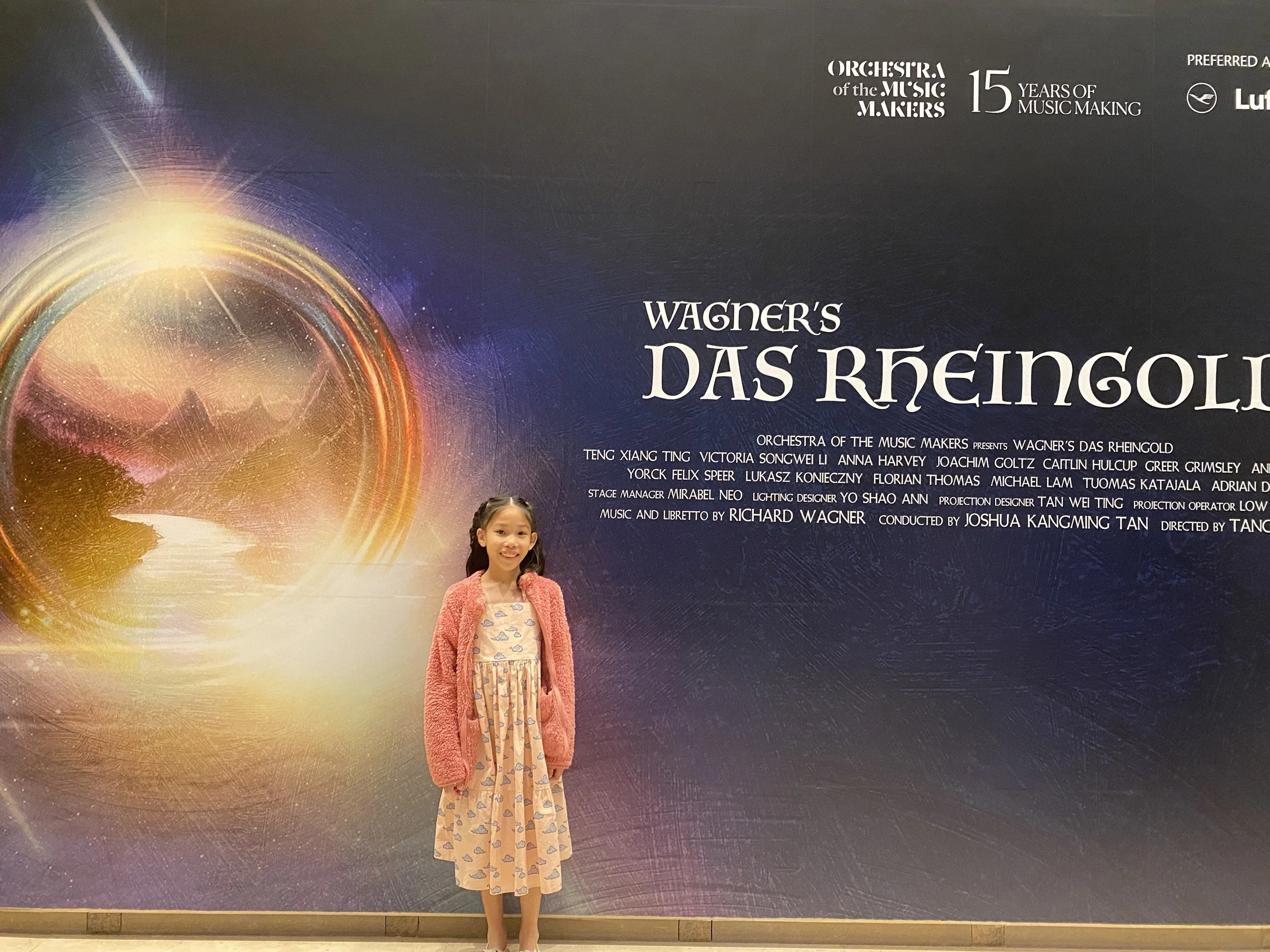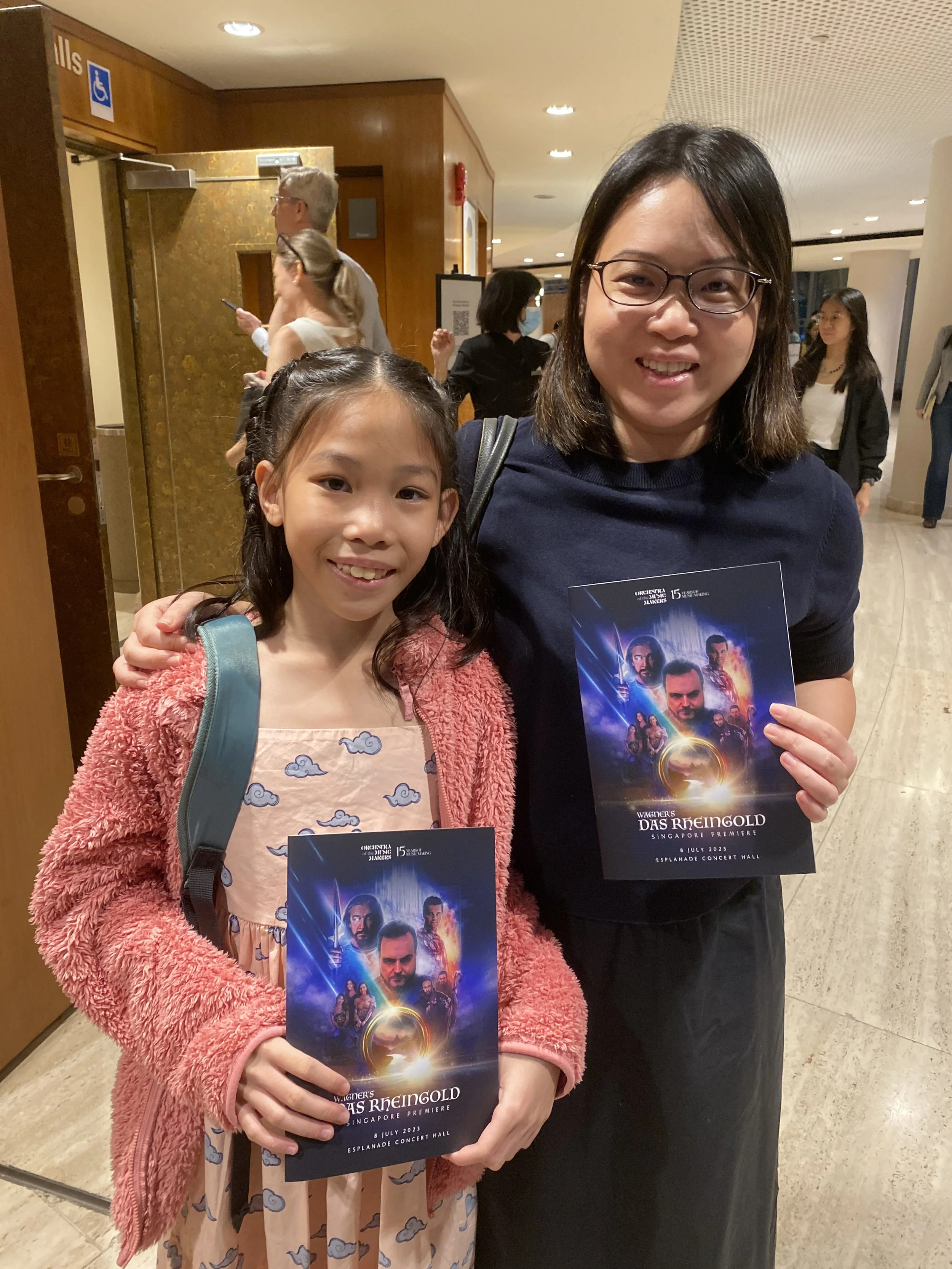Wagner's Das Rheingold
Instrument: Vocals
Venue: Esplanade Concert Hall
Date: Sat, 8 Jul 2023 7:30 PM
Das Rheingold by Richard Wagner was unlike anything I’ve ever heard before. Performed by the Orchestra of the Music Makers (OMM), it was my first time attending a full-length opera without any breaks, and I was really drawn in by how the music told the story even without stage action or costumes.
The entire opera felt like one continuous wave of sound. There were no separate arias or songs — just music flowing from one idea to the next. I thought it was interesting how Wagner used something called leitmotifs, where short melodies represented different characters or ideas. For example, every time the Rhinemaidens appeared, you could hear their shimmering theme again, like little waves returning to the surface.
As a violinist, I was amazed by how the strings built tension during the scenes with the gods, especially when Alberich steals the gold. The lower strings had such a dark and powerful tone — it made me realise how important the orchestra is in creating the drama. The brass section was also super strong — especially when the gods walked across the rainbow bridge to Valhalla. That part felt huge and majestic, almost like something from Crown Imperial by William Walton, but even more serious.
As a singer, I was curious how the vocalists managed to project over such a big orchestra. Their voices were strong but not shouty. I could hear the emotion in their singing — sometimes proud, sometimes scared, sometimes greedy. Even though the whole opera was in German, I could still feel what the characters were going through.
Listening to Das Rheingold made me think about how music can tell a story without words we understand. Just like Dvořák’s Czech Suite paints pictures of the countryside using folk melodies, Wagner’s music paints emotions and mythological worlds using harmony, rhythm and colour.
I’m not sure if I’m ready to sing Wagner yet (it's extremely difficult!), but I’m really inspired to learn more about opera and how composers use the orchestra like a giant voice.


